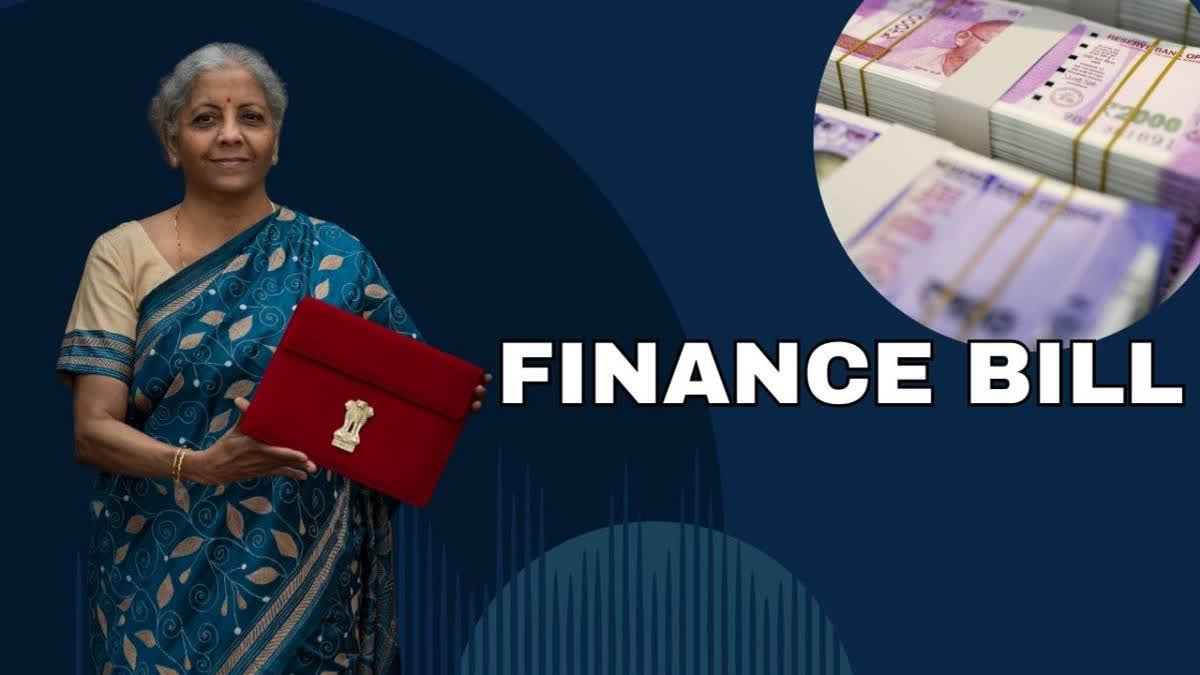New Delhi: While presenting the Union Budget, the finance minister also presents a Finance Bill to the Lok Sabha to give effect to the tax proposals contained in the Union Budget. The Finance Bill for a financial year is presented to the Lok Sabha immediately after the presentation of the Union Budget for the year.
The government is required to get approval from the Parliament by way of passing a law to impose a new tax or to alter or abolish an existing tax. In order to give effect to the finance minister’s budget proposals, particularly about taxes and also to give effect to certain financial provisions of the Government of India, a Finance Bill is always presented to the Lok Sabha, immediately after the presentation of the budget.
The requirement to obtain the President’s approval
The Finance Bill being a special bill requires the President of India’s approval for its introduction in the Lok Sabha.
There are two Articles in the Indian Constitution which deal with the Presidential recommendation for introducing a Finance Bill in the Lok Sabha. These are Articles 117 and 274.
Article 117 deals with special provisions about financial bills. It says a bill or amendment making provision for any of the matters specified in sub-clauses (a) to (f) of clause (1) of article 110 which deals with money bills will not be introduced in the Lok Sabha without the approval of the President and such bills will not introduce in the Council of States – the Rajya Sabha.
Provisions of Article 110 deal with money bills which contain provisions to impose, alter, abolish, remission or regulate any tax or if they deal with the borrowing of money or guarantee undertaken by the government or withdrawal of money from Consolidated Fund of India, among other things.
While Article 117 deals with the requirement of Presidential approval for introducing a finance bill in the Lok Sabha, Article 274 deals with the requirement of Presidential approval for moving a bill in the Parliament that affects the taxation in which states are interested or which varies the meaning of agricultural income under the Income Tax of 1961.
Article 274 also says that Presidential approval for moving a bill will also be required if it changes the money as it may be distributable to states or if it deals with any surcharge levied by the Union government.
Therefore the finance bill not only requires Presidential approval for its introduction but it requires this approval under two distinct Articles of Indian Constitution.
To obtain this approval, the finance minister writes a letter to the Secretary General of the Lok Sabha which forwards the letter to the President of India.
After considering the subject matter of the proposed bill, the President then recommends the introduction of the finance bill in the Lok Sabha under clauses (1) and (3) of Article 117, and also under clause (1) of Article 274, and its consideration by the Lok Sabha.
Objects of the finance bill
The government usually adds a statement of objects and reasons (SOR) for introducing a law in the Parliament. The same is the case with a financial bill which is introduced immediately after the budget.
For example, in the Finance Bill 2024, which was introduced with the interim budget for the current financial year on February 1, the finance minister said it was needed to continue the existing rates of income tax for the financial year 2024-2025, to provide for certain relief to taxpayers and to make amendments in certain laws.



